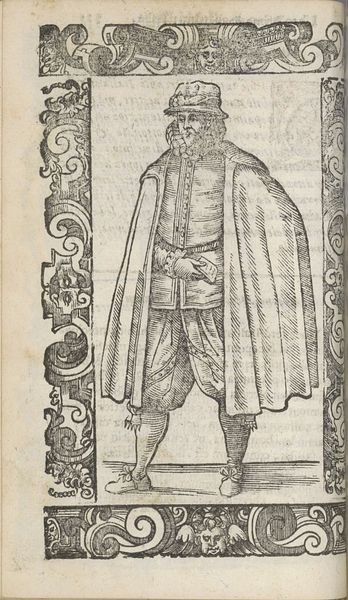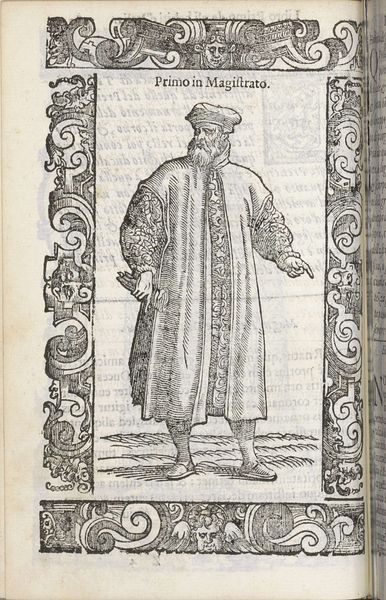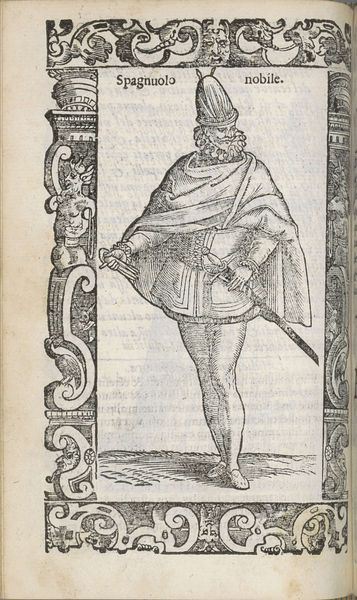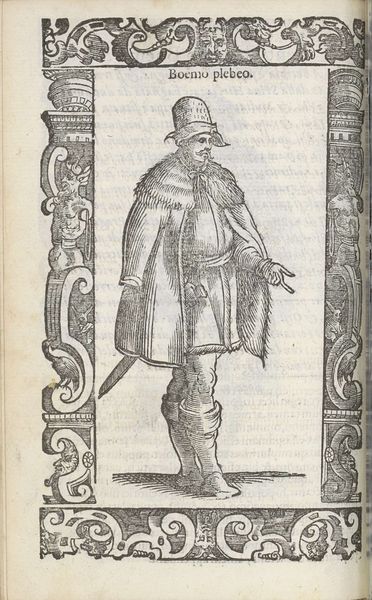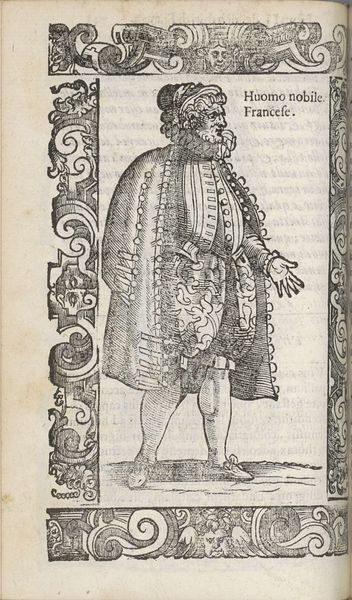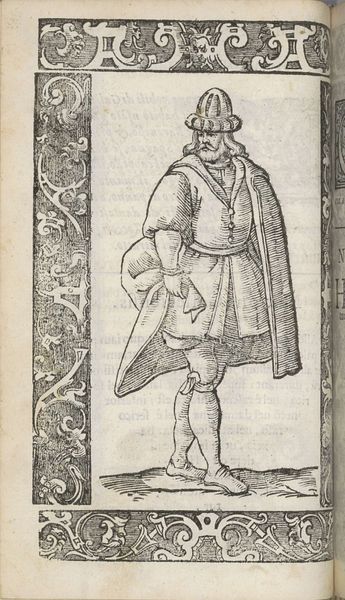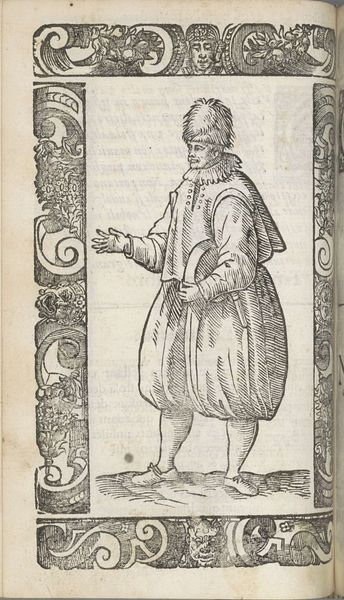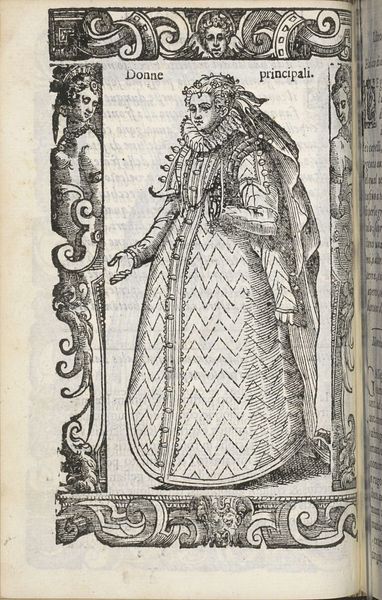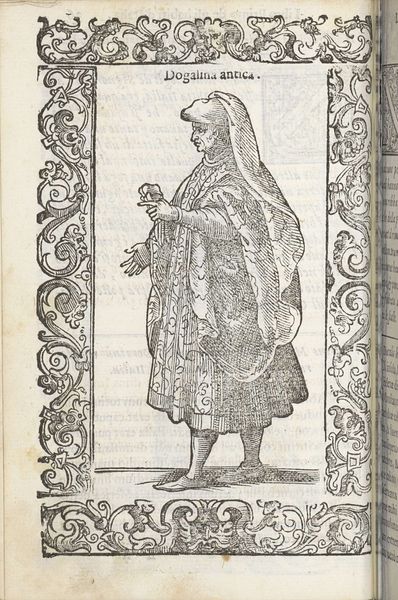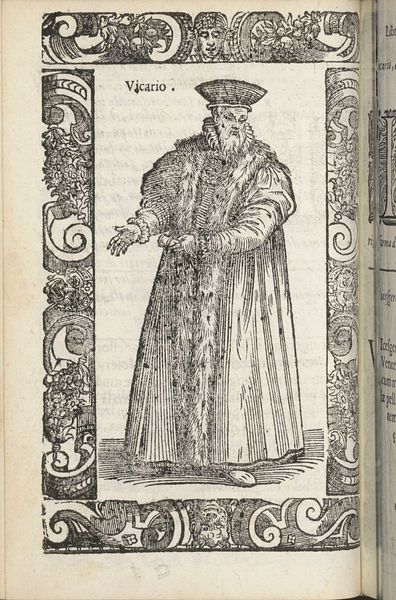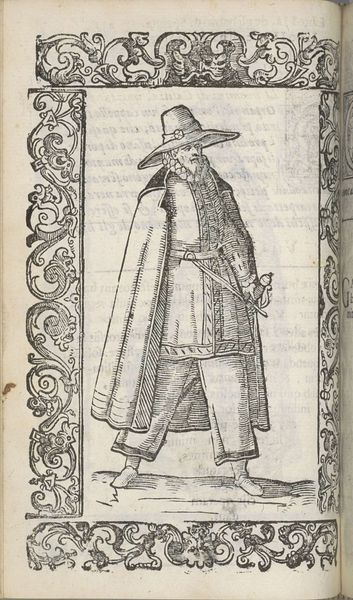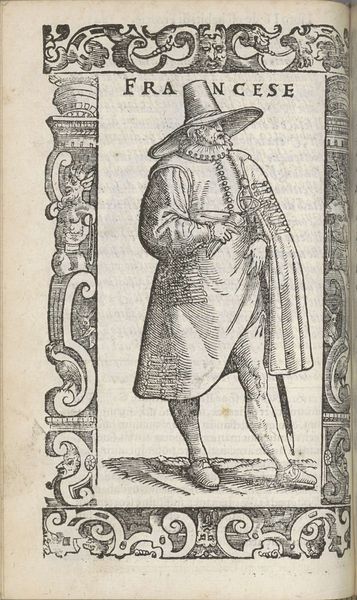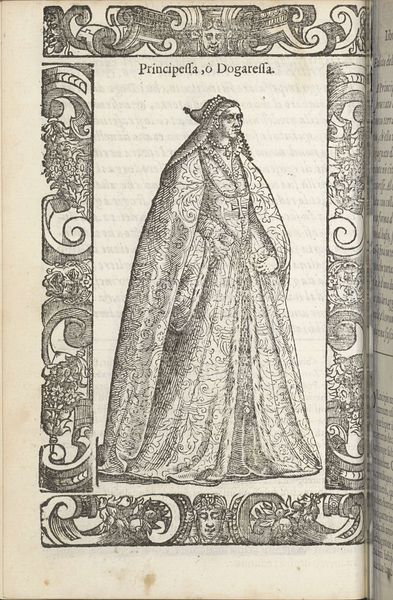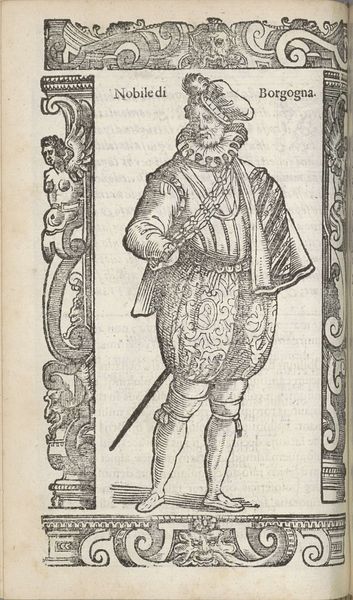
print, engraving
#
portrait
#
pen drawing
# print
#
pen sketch
#
old engraving style
#
sketch book
#
figuration
#
personal sketchbook
#
pen-ink sketch
#
pen and pencil
#
pen work
#
sketchbook drawing
#
italian-renaissance
#
sketchbook art
#
engraving
Dimensions: height 167 mm, width 125 mm
Copyright: Rijks Museum: Open Domain
Curator: Here we have Christoph Krieger’s “Vrouw uit Granada, in wijde cape,” or "Woman from Granada, in a wide cape," created in 1598. It’s an engraving, likely from a sketchbook or collection of costume studies. What’s your initial read? Editor: Immediately, I'm struck by the dramatic interplay of light and shadow achieved with simple lines. The artist uses hatching and cross-hatching to sculpt the form of the cape, giving it a tangible, almost weighty presence on the page. Curator: Absolutely. And understanding the period, dress was never just dress. Costume signified status, region, even religious affiliation. Here, we see how clothing serves as a potent marker of identity for a woman from Granada. This wasn't just about depicting fabric; it was about situating her within a complex social landscape. Consider, Granada, even a century after the Reconquista, retained a unique cultural position, negotiating its Moorish past with the increasing dominance of Christian Spain. Editor: The texture is definitely intriguing. The cape seems to overwhelm her frame, yet the clean, flowing lines create an elegant overall silhouette. Notice how the artist varies the density of lines to suggest volume and depth. The delicate strokes used to define her face and hands contrast sharply with the bolder marks of the garment. Curator: The cape itself might also symbolize a form of protection, perhaps even resistance. Granada, at the time, had seen decrees that limited traditional practices. To wear such a distinctive cape could be interpreted as maintaining cultural connections, in an act of defiant beauty and survival, a declaration in plain sight. Editor: Perhaps, but it also functions as a wonderful study in contrasts. Look at the ornamental frame, too; the symmetrical elements contain small faces, juxtaposing the organic drapery with the classical ornamentation surrounding it. Krieger shows mastery in organization and pattern. Curator: Indeed, it’s in this fusion of form and socio-historical awareness that this artwork generates its intrigue. Thanks for the close looking. Editor: My pleasure. The beauty truly emerges when we bring our own analysis.
Comments
No comments
Be the first to comment and join the conversation on the ultimate creative platform.
